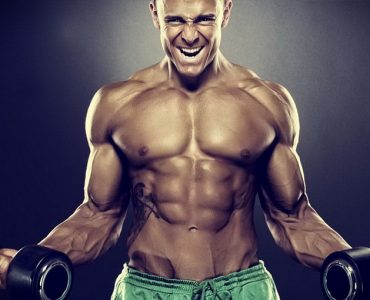Whey protein was a huge hit with bodybuilders in the late 90s. Laboratories and manufacturers food supplements and supplements have taken advantage of this enthusiasm to develop this market. Different types of whey protein then appeared
The different types of Whey for weight gain
- Whey concentrates
- Whey isolate
- CFM or “Cross-Flow Microfiltration”
- Hydrolyzed whey
Opting for the right whey protein then becomes embarrassing in front of all these varieties. This post will enlighten you on the properties of whey. He will guide you in your choice and will also advise you in the consumption of the product, especially if you plan to gain mass fast or muscle.
Whey protein, also known as whey protein or whey protein, is a natural substance obtained from cow’s milk. It displays a high biological value and a complete aminogram. The characteristics of whey make it an ally in the maintenance and development of muscle mass (1). Its reduced level of lipids and its appetite suppressant effect justify its effectiveness in dry. Its anabolic property is explained by its ability to minimize the destruction of muscle cells, thus facilitating their recovery.
The consumption of whey protein has a robust ability to stimulate muscle protein synthesis. In fact, whey protein stimulates muscle protein synthesis more than other proteins such as casein and soy.
Is whey effective for lean mass gain?
Before explaining why whey is a good protein for building muscle, it is important to shed some light on the relationship between whey and weight loss.
In the trade, it is often said that whey helps you lose weight and that by consuming it, the athlete will see his fat disappear and all that will remain is his lean muscle. Think again, like any other protein, it’s not the whey by itself that makes you lose weight. Rather, it’s his calorie intake. If your food is too high in calories, it will make you fat, and if you take in addition to high calorie whey as a supplement, you will absorb more calories and this is what will make you gain mass quickly, and this mass gain will not necessarily be muscular.
From this reasoning, we can therefore deduce that whey is advantageous for the dry under two conditions:
- Either you take high protein concentrate whey that has very low carbohydrate and fat levels, or you take an isolate. In these cases, the caloric density of your dietary supplement is reduced. This is what guarantees fat loss.
- The ability of whey to decrease appetite allows for better control of eating when following a diet plan.

Use whey for weight gain
Whey is one of the best bodybuilding products for building muscle mass. This is justified by its composition and its speed of assimilation. This type of protein has a high content of BCAAs. The advantage of this product is also its excellent quality / price ratio.
Compared to casein, soy protein or egg protein, whey is absorbed right after a weight training session for an immediate supply of protein and amino acids to the muscles. Leucine present in BCAAs and therefore in whey protein can contribute to protein synthesis in muscles but also provide anabolic effects (3).
However, you have to be careful, because it is not just the consumption of whey that leads to mass gain . It must be accompanied by a nutritional diet and appropriate training. It should therefore be remembered that whey is not a meal replacement. In short, your progress depends on three factors: sports nutrition, training and whey.
Here are some conditions for consuming whey for better muscle mass gain :
- The product should always be diluted with water and not with milk, as this may slow digestion. Mixing whey with milk will slow down the protein synthesis necessary for muscle development.
- Its combination with a good choice of amino acids will only improve its effectiveness.
- You have to know how to choose when to take your whey. A person new to bodybuilding will be satisfied with 30 to 40 grams of whey diluted with water, to be taken immediately after their workout. But in general, take whey half an hour before exercising to prepare the amino acids in the blood for the catabolic stress that will come. During training, your digestive system does not digest protein well, so it needs to be at rest. So prefer a hydrolyzate to whey during exercise. Finally, immediately after training, whey can be taken with L-leucine for a better anabolic response.
- When it comes to the dosage of whey, you should not rely solely on your daily protein intake. You also need to consider protein intake from your entire diet. The dose varies depending on when you take it. After training, it depends on how much mass you put on during exertion. In total, the recommended daily amount of protein for a bodybuilder is 1.5 to 2.5 grams per pound of weight. In case your diet plan doesn’t contain enough protein, then whey can complement it well. So consume about 40 g of whey immediately after training in order to stop the catabolism caused by weight training and to trigger anabolism. The anabolic work of whey is enhanced when its intake is accompanied by 5 to 10 grams of L-leucine.




